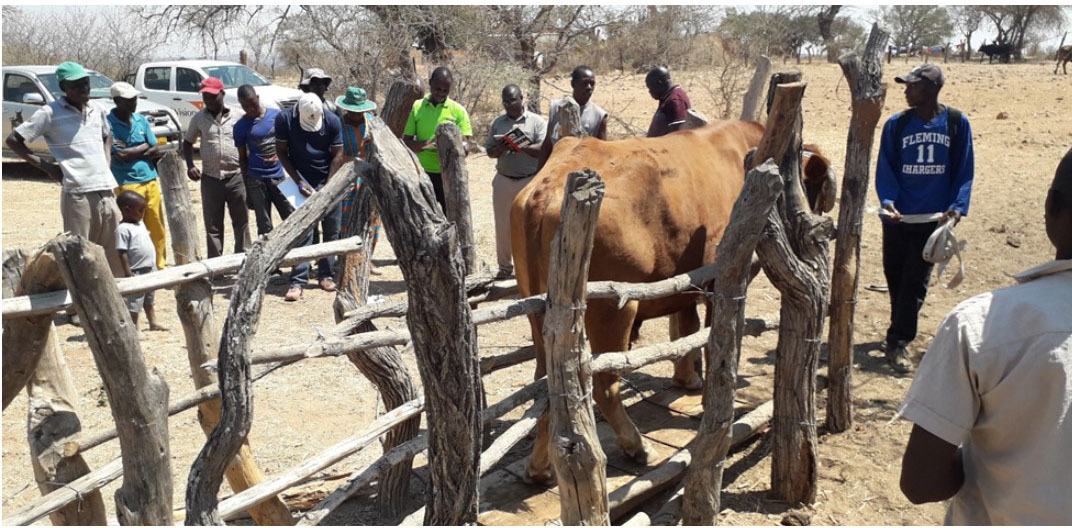
An ox sold for USD 250 during Makoni cattle sales with PHI.
Smallholder farmers in Makoni district, Manicaland province, participated in a successful formal cattle sale event, the first in many years, which was conducted by PHI, trading as Tinotenga Mombe.
Lack of organised marketing of cattle in Zimbabwe is one of the bottlenecks affecting beef cattle production. As a result, smallholder farmers resort to the informal way of marketing their cattle, with middlemen arbitrarily setting prices and offloading the animals at cattle auction points and to abattoirs in towns often benefiting more than the farmers themselves.
PHI won the contract to manage the Cattle Business Centre (CBC) in Makoni district. Under the CBC model, private sector players will provide services to the community. Services will include bulling, feeder finance, extension & technical services, drug and feed sales, heifer/steer exchange, and fodder feeding for a fee.
A total of 17 cattle were bought out of a total yarding of 33 animals, at an average price of USD200.00 per beast. The lowest price was USD130, while the highest animal fetched USD450.
It was noted that there is a big variance between farmers’ price expectations and what the market is willing to offer. This is caused by market distortions, farmers’ lack of market knowledge and suppressed beef prices. The distortions are emanating from the RTGS$ and USD exchange rate variations, for both cash as well as electronic transfers.
Sixteen cattle were rejected for sale because of poor body condition. Despite this, the Department of Veterinary Services (DVS) and the Makoni Rural District Council commended the high prices on offer by the private partner, and it was hailed as a good start.
The Beef Enterprise Strengthening and Transformation (BEST) project will ensure that farmers are trained on good animal husbandry practices to ensure highest possible returns from selling cattle.
PHI is dissatisfied with the proposed council levy of 3% of the value of animals bought. Currently the BEST team is facilitating discussions between PHI and the Makoni Rural District Council to negotiate an acceptable cattle levy. Various different options will be explored, including using an agreed figure per animal bought or an annual buying license which is paid for at the beginning of every year.
BEST project in collaboration with Livestock Meat Advisory Council (LMAC) will advocate and lobby for reduction of costs of compliance and removal of multiple levy systems.
